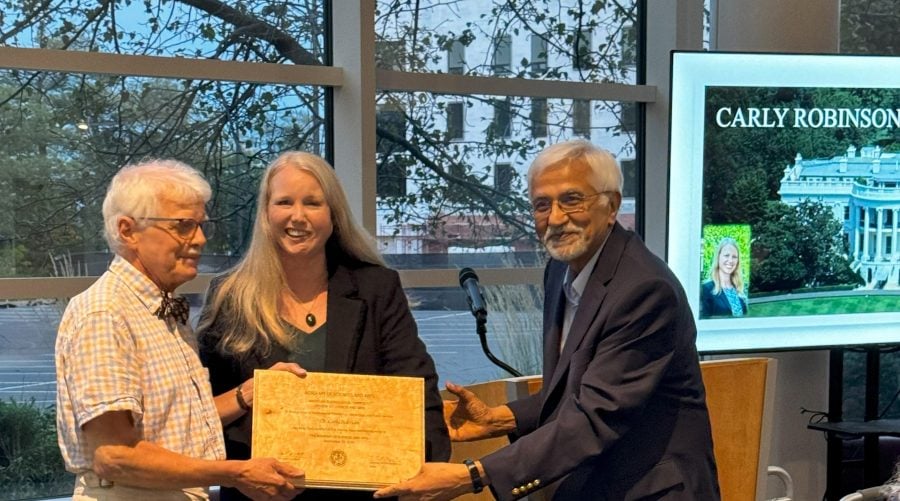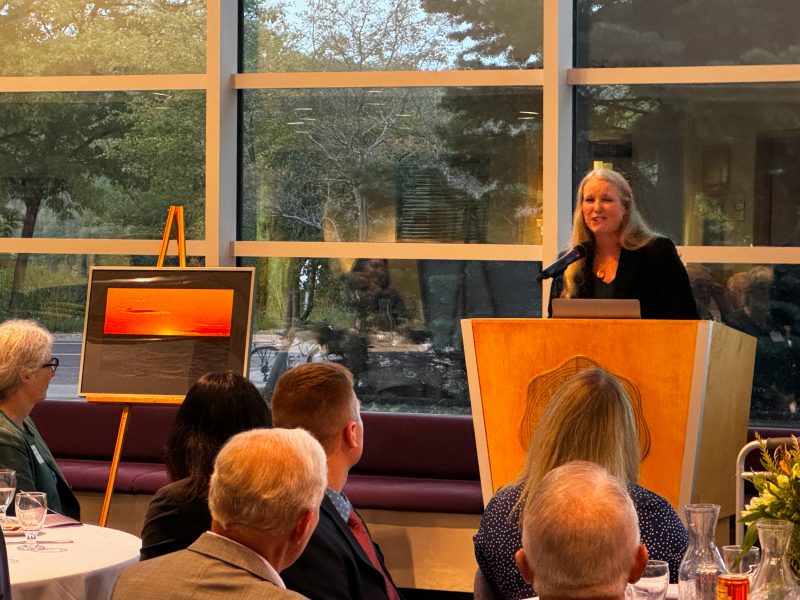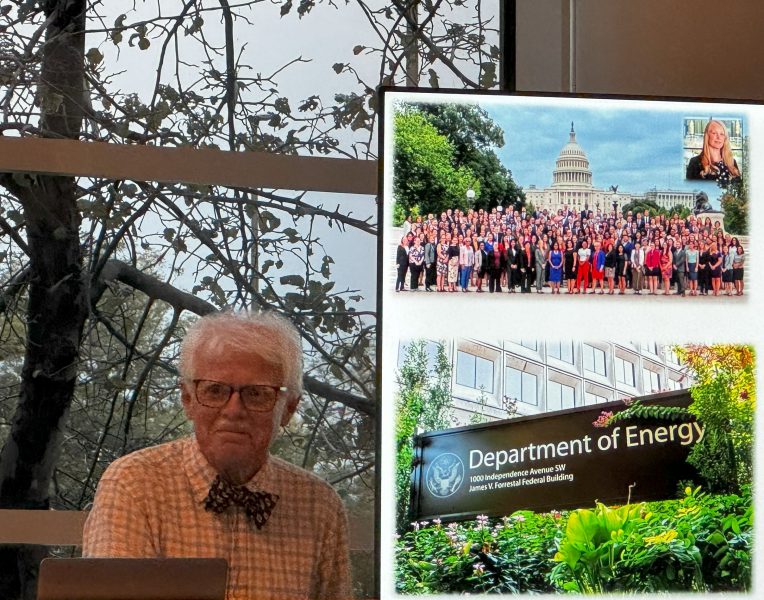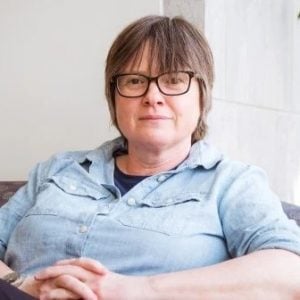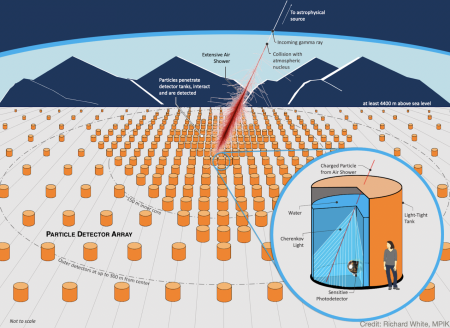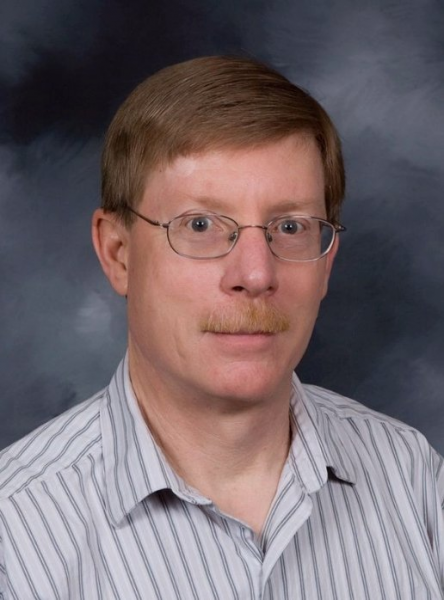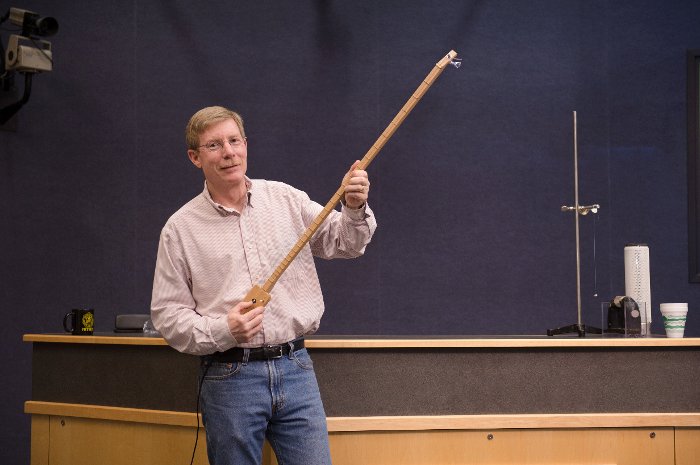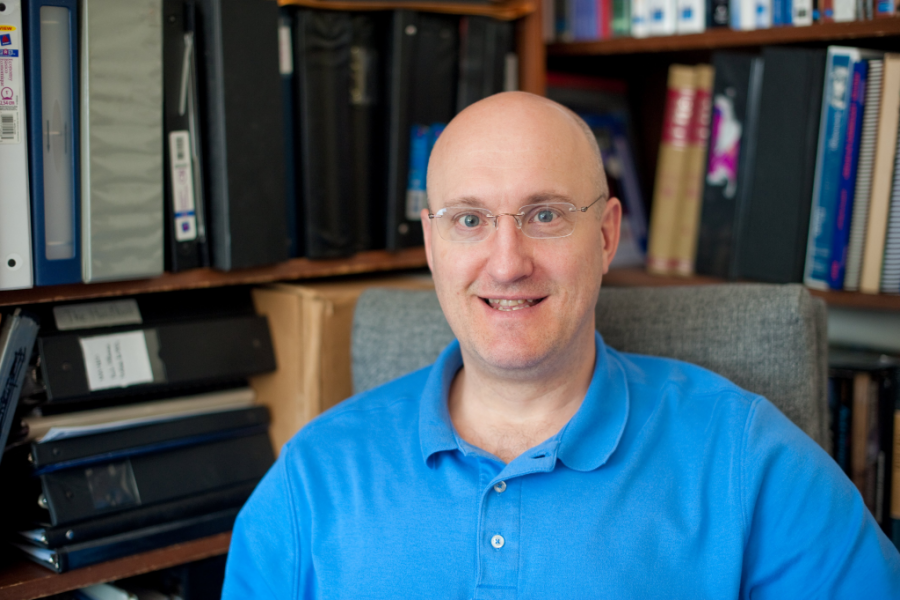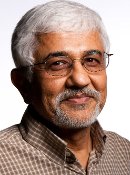Congratulations to Claudio Mazzoleni on his selection as a 2025 Distinguished Professor. The Distinguished Professor title recognizes outstanding faculty members who have made substantial contributions to the University as well as their discipline.
Mazzoleni is a professor of physics and director of the Atmospheric Sciences Ph.D. program at Michigan Tech. He has demonstrated exceptional leadership in atmospheric aerosol research, coupled with outstanding teaching and mentorship of students. He is recognized for his research on aerosol properties and their influence on air quality and climate, notably the optical properties of biomass burning aerosols, and aerosol transport and properties at remote sites like Pico Mountain in the Azores, and has pioneered the development of multiple instruments for characterizing aerosol and cloud properties in the laboratory and in the field.
Mazzoleni and his research team have published extensively in high-impact journals, resulting in over 9,000 citations of their work. He has established a strong externally funded research program in atmospheric physics, with support from federal and industrial sources including the National Science Foundation (NSF), National Aeronautics and Space Administration (NASA), and U.S. Department of Energy (DOE). He is also recognized for his dedicated mentorship of undergraduate students and for his collaborative publications with researchers from other prestigious institutions.
About the Physics Department
Physicists at Michigan Technological University help students apply academic concepts to real-world issues. Our physicists take on the big questions to discover how the universe works—from the smallest particles to the largest galaxies. The Physics Department offers three undergraduate degrees and three graduate degrees. Supercharge your physics skills to meet the demands of a technology-driven society at a flagship public research university powered by science, technology, engineering, and math. Graduate with the theoretical knowledge and practical experience needed to solve real-world problems and succeed in academia, research, and tomorrow’s high-tech business landscape.
Questions? Contact us at physics@mtu.edu. Follow us on Facebook, Twitter, and YouTube for the latest happenings. Or read more at the Physics Newsblog.

